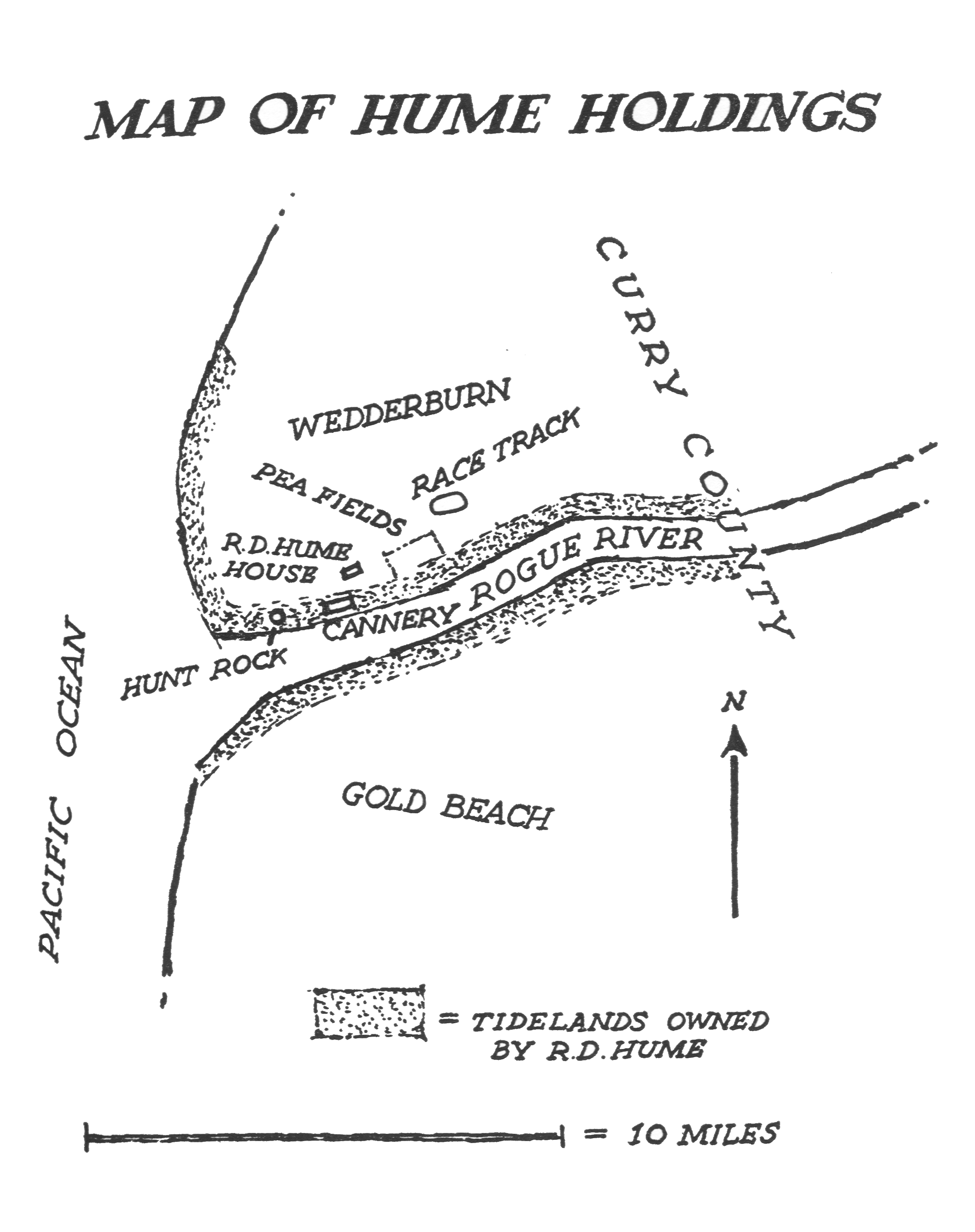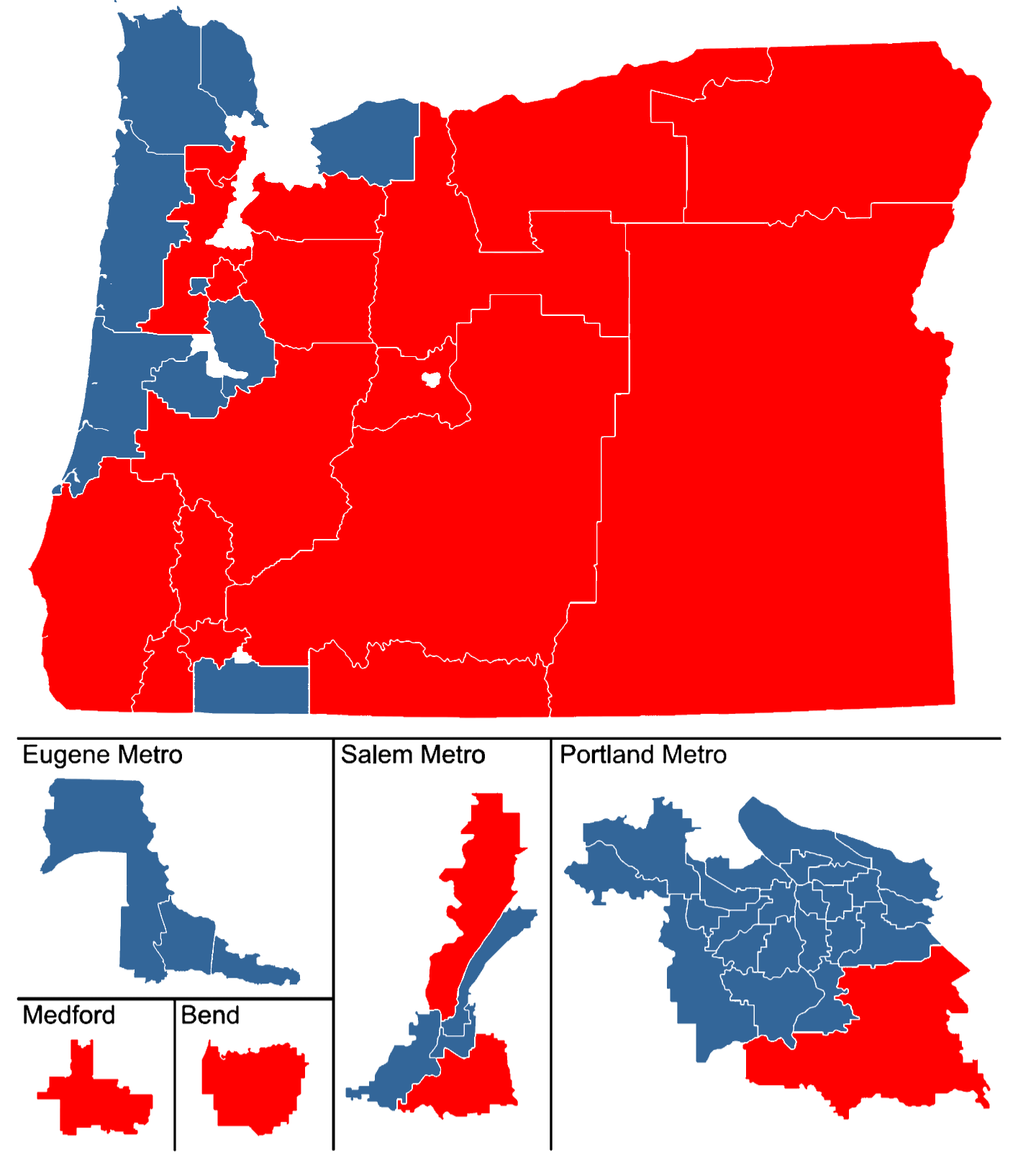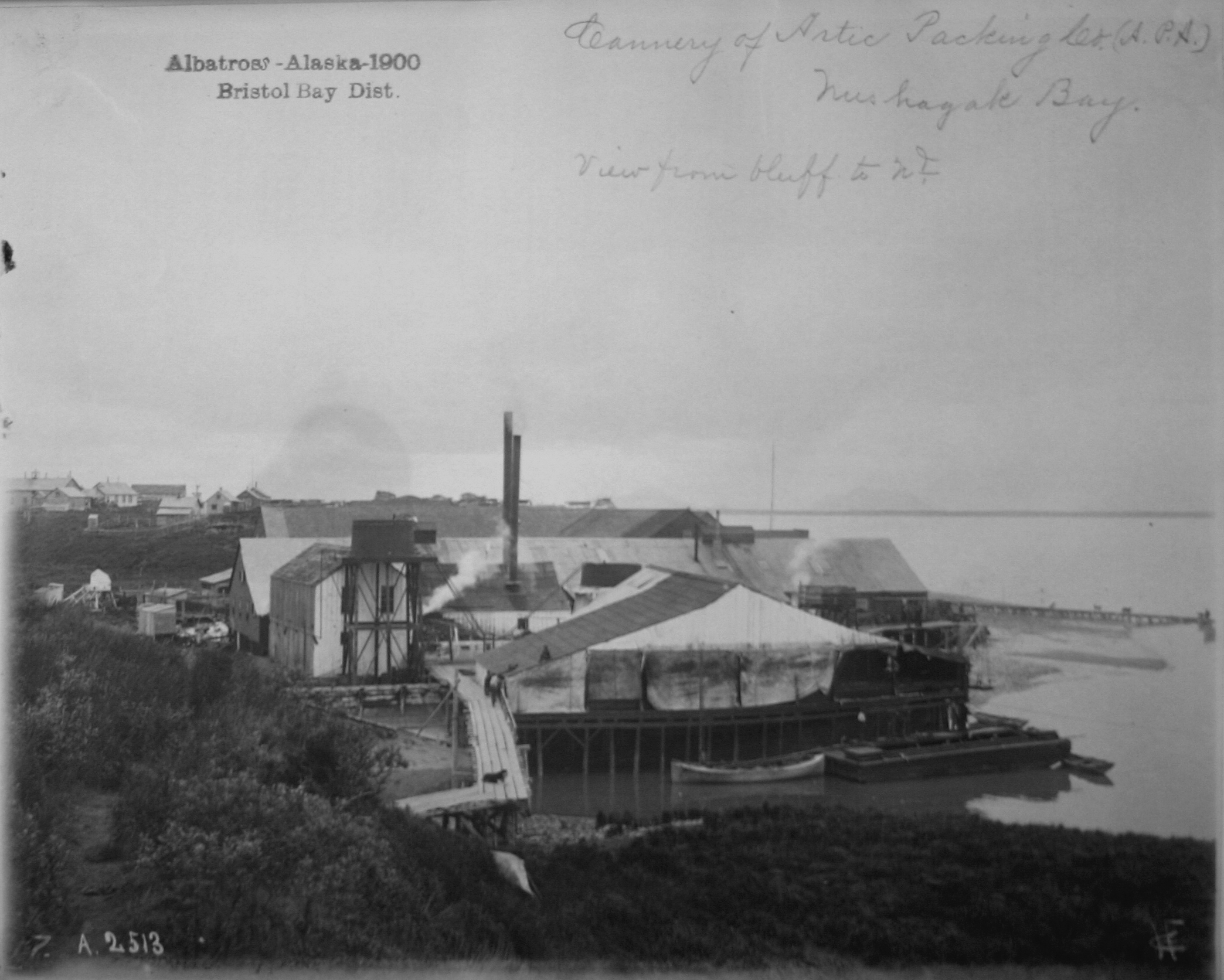|
R. D. Hume
Robert Deniston Hume (October 31, 1845 – November 25, 1908) was a Canning, cannery owner, pioneer Fish hatchery, hatchery operator, politician, author, and self-described "pygmy monopolist" who controlled salmon fishing for 32 years on the lower Rogue River (Oregon), Rogue River in U.S. state of Oregon. Born in Augusta, Maine, and reared by foster parents on a farm, Hume moved at age 18 to San Francisco to join a salmon-canning business started by two of his brothers. They later re-located to Astoria, Oregon, Astoria on the Columbia River, where they prospered. After the death of his first wife and their two young children, Hume moved again and started anew in Gold Beach, Oregon, Gold Beach, at the mouth of the Rogue. In 1877 Hume bought rights to a Rogue River fishery, then built a salmon cannery and many other structures and acquired all of the tidelands bordering the lower of the river. He remarried, invested in a small fleet of ships and a salmon hatchery and expanded ... [...More Info...] [...Related Items...] OR: [Wikipedia] [Google] [Baidu] |
Augusta, Maine
Augusta is the capital of the U.S. state of Maine and the county seat of Kennebec County. The city's population was 18,899 at the 2020 census, making it the tenth-most populous city in Maine, and third-least populous state capital in the United States after Montpelier, Vermont, and Pierre, South Dakota. Located on the Kennebec River at the head of tide, it is the principal city in the Augusta-Waterville Micropolitan Statistical Area and home to the University of Maine at Augusta. History The area was first explored by the English of the short-lived Popham Colony in September 1607. 21 years later, English settlers from the Plymouth Colony settled in the area in 1628 as part of a trading post on the Kennebec River. The settlement was known by its Native American name ''Cushnoc'' (or Coussinoc or Koussinoc), meaning "head of the tide." Fur trading was at first profitable, but because of Native uprisings and declining revenues, Plymouth Colony sold the Kennebec Patent in 1 ... [...More Info...] [...Related Items...] OR: [Wikipedia] [Google] [Baidu] |
Oregon House Of Representatives
The Oregon House of Representatives is the lower house of the Oregon Legislative Assembly. There are 60 members of the House, representing 60 districts across the state, each with a population of 65,000. The House meets in the west wing of the Oregon State Capitol in Salem. Members of the House serve two-year terms without term limits. In 2002, the Oregon Supreme Court struck down Oregon Ballot Measure 3 (1992), that had restricted State Representatives to three terms (six years) on procedural grounds. In the current legislative session, Democrat Dan Rayfield of Corvallis currently serves as Speaker since February 1, 2022 after Tina Kotek stepped down. Milestones * 1914: Marian B. Towne became the first woman elected to the Oregon House * 1972: Bill McCoy became the first African American to serve in the House * 1985: Margaret Carter became the first black woman elected to the House * 1991: Gail Shibley became the first openly gay person to serve in the House * 2013: Tina ... [...More Info...] [...Related Items...] OR: [Wikipedia] [Google] [Baidu] |
William McKinley
William McKinley (January 29, 1843September 14, 1901) was the 25th president of the United States, serving from 1897 until his assassination in 1901. As a politician he led a realignment that made his Republican Party largely dominant in the industrial states and nationwide until the 1930s. He presided over victory in the Spanish–American War of 1898; gained control of Hawaii, Puerto Rico, the Philippines and Cuba; restored prosperity after a deep depression; rejected the inflationary monetary policy of free silver, keeping the nation on the gold standard; and raised protective tariffs to boost American industry and keep wages high. A Republican, McKinley was the last president to have served in the American Civil War; he was the only one to begin his service as an enlisted man, and end as a brevet major. After the war, he settled in Canton, Ohio, where he practiced law and married Ida Saxton. In 1876, McKinley was elected to Congress, where he became the Republican e ... [...More Info...] [...Related Items...] OR: [Wikipedia] [Google] [Baidu] |
Salem, Oregon
Salem ( ) is the capital of the U.S. state of Oregon, and the county seat of Marion County, Oregon, Marion County. It is located in the center of the Willamette Valley alongside the Willamette River, which runs north through the city. The river forms the boundary between Marion and Polk County, Oregon, Polk counties, and the city neighborhood of West Salem, Salem, Oregon, West Salem is in Polk County. Salem was founded in 1842, became the capital of the Oregon Territory in 1851, and was incorporated in 1857. Salem had a population of 174,365 in 2019, making it the third-largest city in the state after Portland, Oregon, Portland and Eugene, Oregon, Eugene. Salem is the principal city of the Salem Metropolitan Statistical Area, a United States metropolitan area, metropolitan area that covers Marion and Polk counties and had a combined population of 390,738 at the 2010 census. A 2019 estimate placed the metropolitan population at 400,408, the state's second largest. This area is, in ... [...More Info...] [...Related Items...] OR: [Wikipedia] [Google] [Baidu] |
Internal Improvements
Internal improvements is the term used historically in the United States for public works from the end of the American Revolution through much of the 19th century, mainly for the creation of a transportation infrastructure: roads, turnpikes, canals, harbors and navigation improvements.Review by Tom Review of John Lauritz Larson's Internal Improvement: National Public Works and the Promise of Popular Government in the Early United States', University of North Carolina Press, 2001. . This older term carries the connotation of a political movement that called for the exercise of public spirit as well as the search for immediate economic gain. Improving the country's natural advantages by developments in transportation was, in the eyes of George Washington and many others, a duty incumbent both on governments and on individual citizens. Background While the need for inland transportation improvements was universally recognized, there were great differences over the questions of how the ... [...More Info...] [...Related Items...] OR: [Wikipedia] [Google] [Baidu] |
Alaska Packers' Association
The Alaska Packers' Association (APA) was a San Francisco based manufacturer of Alaska canned salmon founded in 1891 and sold in 1982. As the largest salmon packer in Alaska, the member canneries of APA were active in local affairs, and had considerable political influence. The Alaska Packers' Association is best known for operating the "Star Fleet," the last fleet of commercial sailing vessels on the West Coast of North America, as late as 1927. Foundation The APA was formed in 1891 when the Alaska salmon industry was in its infancy but already produced more canned salmon than the market could bear. The association was initially formed to sell off the surplus pack and it proved so successful that it incorporated in 1892 as the Alaska Packing Association to better manage canned salmon production to meet demand. Of the original 31 member canneries across Alaska, 9 were idled that year. With minor changes, the association reincorporated as the Alaska Packers Association in 18 ... [...More Info...] [...Related Items...] OR: [Wikipedia] [Google] [Baidu] |
Democratic Party (United States)
The Democratic Party is one of the two major contemporary political parties in the United States. Founded in 1828, it was predominantly built by Martin Van Buren, who assembled a wide cadre of politicians in every state behind war hero Andrew Jackson, making it the world's oldest active political party.M. Philip Lucas, "Martin Van Buren as Party Leader and at Andrew Jackson's Right Hand." in ''A Companion to the Antebellum Presidents 1837–1861'' (2014): 107–129."The Democratic Party, founded in 1828, is the world's oldest political party" states Its main political rival has been the Republican Party since the 1850s. The party is a big tent, and though it is often described as liberal, it is less ideologically uniform than the Republican Party (with major individuals within it frequently holding widely different political views) due to the broader list of unique voting blocs that compose it. The historical predecessor of the Democratic Party is considered to be th ... [...More Info...] [...Related Items...] OR: [Wikipedia] [Google] [Baidu] |
Sylvester Pennoyer
Sylvester Pennoyer (July 6, 1831May 30, 1902) was an American educator, attorney, and politician in Oregon. He was born in Groton (town), New York, Groton, New York (state), New York, attended Harvard Law School, and moved to Oregon at age 25. A History of the Democratic Party (United States), Democrat, he served two terms as the List of Governors of Oregon, eighth Governor of Oregon from 1886 to 1895. He joined the Populist cause in the early 1890s and became the second Populist Party state governor in history. He was noted for his political radicalism, his opposition to the conservative Bourbon Democracy of President Grover Cleveland, his support for labor unions, and his opposition to the Chinese in Oregon. He was also noted for his prickly attitude toward both U.S. Presidents whose terms overlapped his own -- Benjamin Harrison and Cleveland, whom he once famously told via telegram to mind his own business. He later served as List of mayors of Portland, Oregon, mayor of Portland ... [...More Info...] [...Related Items...] OR: [Wikipedia] [Google] [Baidu] |
William Simon U'Ren
William Simon U'Ren (January 10, 1859 – March 8, 1949) was an American lawyer and political activist. U'Ren promoted and helped pass a corrupt practices act, the presidential primary, and direct election of U.S. senators. As a progressive, U'Ren championed the initiative, referendum, and recall systems. These measures were also designed to promote democracy and weaken the power of backstage elites. His reforms in Oregon were widely copied in other states. He supported numerous other reforms, such as the interactive model of proportional representation, which was not enacted. He had little success in battles for a Georgist "Single Tax" on the unimproved value of land. Early life William Simon U'Ren (accent the last syllable) was born on January 10, 1859, in Lancaster, Wisconsin, the son of immigrants from Cornwall, England. Their surname was originally spelled Uren. U'Ren's father, William Richard U'Ren was a socialist who worked as a blacksmith and emigrated to America o ... [...More Info...] [...Related Items...] OR: [Wikipedia] [Google] [Baidu] |
Horse Racing
Horse racing is an equestrian performance sport, typically involving two or more horses ridden by jockeys (or sometimes driven without riders) over a set distance for competition. It is one of the most ancient of all sports, as its basic premise – to identify which of two or more horses is the fastest over a set course or distance – has been mostly unchanged since at least classical antiquity. Horse races vary widely in format, and many countries have developed their own particular traditions around the sport. Variations include restricting races to particular breeds, running over obstacles, running over different distances, running on different track surfaces, and running in different gaits. In some races, horses are assigned different weights to carry to reflect differences in ability, a process known as handicapping. While horses are sometimes raced purely for sport, a major part of horse racing's interest and economic importance is in the gambling associated with ... [...More Info...] [...Related Items...] OR: [Wikipedia] [Google] [Baidu] |
Spawning Bed
A spawning bed is an underwater solid surface on which fish spawn to reproduce themselves. In fishery management, a spawning bed is an artificial bed constructed by wildlife professionals in order to improve the ability of desired game fish to reproduce. Increasing the spawning ability of a fish population may reduce pressure on a fishery and improve the productivity of supplemental stocking from fish hatcheries. In the inland waters of North America, a typical spawning bed will consist of a series of concrete boxes filled with aggregate gravel. The concept is credited to the Kentucky Department of Fish and Wildlife. Joe McFarland, "Making Bass Beds", ''Outdoor Illinois'' XVI:5 (May 2008), pages 16-17. In a typical example of spawning beds in action, the Illinois Department of Natural Resources has installed approximately 50 largemouth bass spawning beds in Crab Orchard Lake in southern Illinois. Joe McFarland, "The Unique Refuge", ''Outdoor Illinois'' XIX:3 (March 2011), ... [...More Info...] [...Related Items...] OR: [Wikipedia] [Google] [Baidu] |
Cafeteria
A cafeteria, sometimes called a canteen outside the U.S., is a type of food service location in which there is little or no waiting staff table service, whether a restaurant or within an institution such as a large office building or school; a school dining location is also referred to as a dining hall or lunchroom (in American English). Cafeterias are different from coffeehouses, although the English term came from the Spanish ''cafetería'', same meaning. Instead of table service, there are food-serving counters/stalls or booths, either in a line or allowing arbitrary walking paths. Customers take the food that they desire as they walk along, placing it on a tray. In addition, there are often stations where customers order food, particularly items such as hamburgers or tacos which must be served hot and can be immediately prepared with little waiting. Alternatively, the patron is given a number and the item is brought to their table. For some food items and drinks, such a ... [...More Info...] [...Related Items...] OR: [Wikipedia] [Google] [Baidu] |





_(clacDA0123).jpg)
